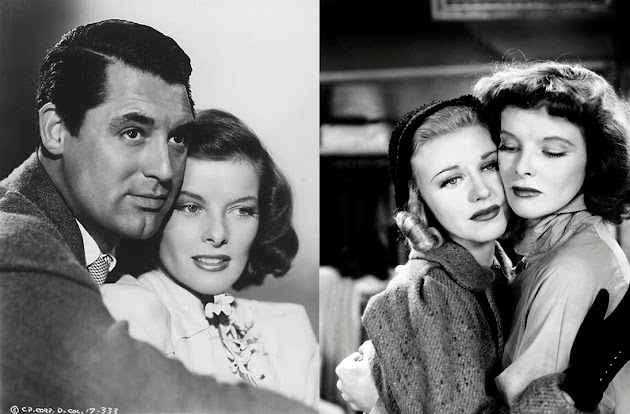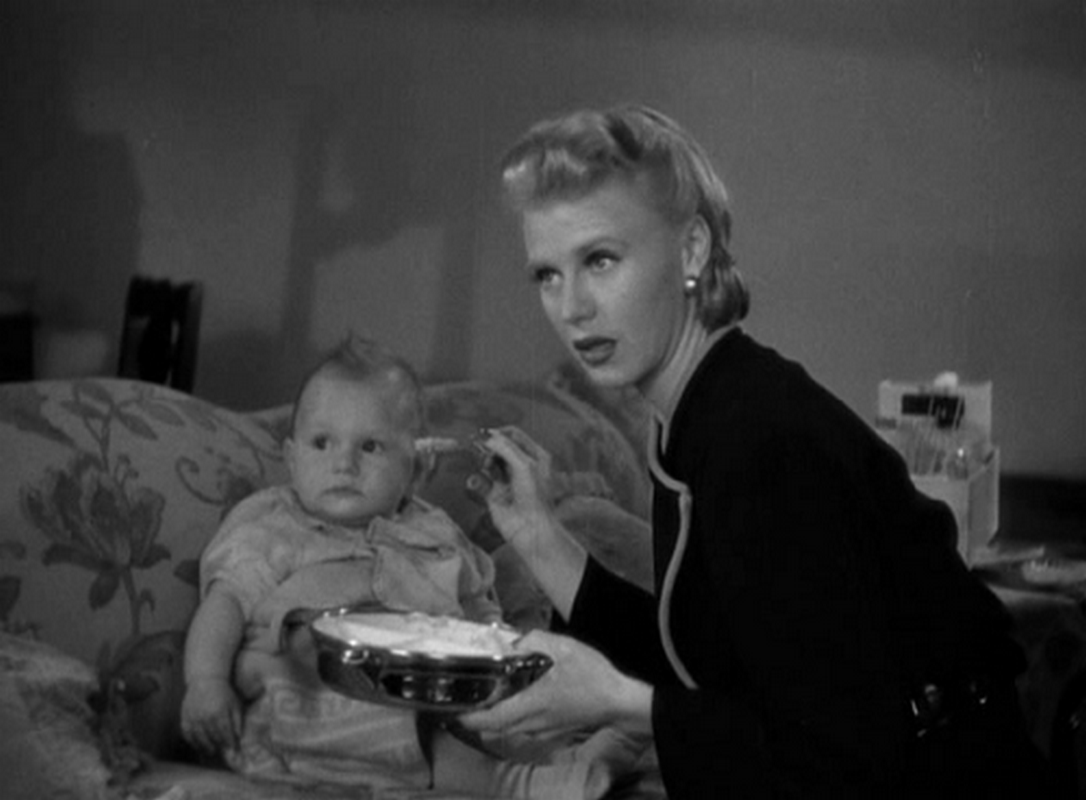The Good Old Days (take only as directed)
It's probably not surprising that a film series entitled Depression/Comedy would focus on films produced during the Great Depression (often with Cary Grant, Katharine Hepburn and Ginger Rogers in various combinations).
Slightly more surprising is our next film, which is every bit the Depression-era comedy, except it was made two decades later.
Trust me.
There is a reason why the 1930s is often remembered today as the Golden Age of Hollywood. Not only was this a decade of intense creativity, it was also a time when the "studio system" was working at its peak efficiency.
Each studio employed a full-time roster of writers, directors, performers etc who were uniquely positioned to pump out film after film after film for a Depression-ravaged audience that was desperate for everything they could get. The system functioned extremely smoothly, and the quality of the product was very high.
But nothing lasts forever.
At the end of World War II, everything began to change. The Hollywood studio system was hit by a series of social and political developments that were to have a devastating effect on movies: both the way they were made, and the way they were consumed.
To begin with, the "Baby Boom" of the post-war years coincided with a general move away from cities and into the suburbs. Families raising very young children had less leisure time for movie-going, and office workers were spending more time commuting, cutting even further into that leisure time.
Television was becoming more and more common, giving families less incentive to venture out to a movie theatre when they did have some time to spare, and box office attendance began to fall significantly.
As if these social and demographic changes weren't bad enough, this was also the era of the "Hollywood Blacklist".
In 1947, the so-called Hollywood Ten were held in contempt of Congress (and eventually sent to prison) marking the beginning of the infamous anti-Communist witch-hunts that were to have a devastating effect on Hollywood.
And in May of 1948, the US Supreme Court rendered its verdict in United States v. Paramount Pictures, Inc. a long-running court battle that ultimately made it illegal for the big Hollywood studios to own their own movie theatres around the country.
Up to that time, most cinemas were owned by a specific studio, and only exhibited films produced by that studio. This meant of course that most films of the era had a ready-made distribution network as soon as they were completed. The Supreme Court decided that production and distribution should not be controlled by the same companies, thus depriving the studios of that established chain of exhibition.
The "Hollywood Antitrust Case" (as it came to be known) was to have a lasting impact on American business models for decades to come, but it was devastating to Hollywood in the short term.
Looking back, you can sort of understand the thinking behind the 1948 court ruling. Imagine what it would be like today if one single film studio (let's call it "Disney" in this completely hypothetical scenario) were to acquire the rights to, I don't know... Marvel, Star Wars, Pixar, National Geographic and everything ever produced by 20th Century Fox, and then lock all of that content into a streaming site that is controlled exclusively by them.
Thank goodness the Hollywood Antitrust Case prevented such a thing from ever happening.
But I digress.
By the early 1950s, all of these trends were coming together in the worst possible way for Hollywood, and profits were plummeting. Between 1945 and 1955, ticket sales dropped by an eye-watering 50%, prompting the major studios to take drastic action. This was the era of wide-screen cinema, stereophonic sound, the abolition of the Production Code and the (first) 3D fad. Studios tried everything they could think of to entice audiences back into the movie theatres.
And it was in the middle of all this that Howard Hawks released the film we're going to see this week.
Remember David and Susan from Bringing Up Baby? Monkey Business could be the story of that couple after they've been married for fifteen years.
Cary Grant (the hapless palaeontologist in the earlier film) is still a scientist (now he's a chemist) who has been working (unhappily) for a private company for some years now. He and his wife (this time played by Ginger Rogers) are still devoted to each other, but their relationship has settled into something comfortable. They are both older, and with age comes a certain maturity. They aren't as zany as they were in their youth, but there is still a strong bond between them.
But this is a screwball comedy. Cary Grant's character has been developing a rejuvenating "youth" formula for the chemical company he works for, and before long both he and Ginger Rogers are given a chance to re-visit their younger days; both literally and metaphorically.
When they take the formula, they begin to "regress" to their younger days, but we're talking about Cary Grant and Ginger Rogers here. Their younger days consist of some of the most iconic moments of classic Hollywood cinema, and Monkey Business takes us on a whirlwind tour of those moments.
Ginger Rogers' youth was spent dancing with Fred Astaire and pretending to be 12.
The plot might be about a mature couple taking a rejuvenating drug and regressing to their youth, but ultimately it's the whole movie that regresses back to the youth of Hollywood itself. Even though it was made in 1952, Monkey Business looks, sounds and feels like a Depression-era comedy.
So the studio system has been gutted. So half the audience is at home watching television So half the writers have been blacklisted. So, it's not surprising that film-makers might be feeling somewhat (there's that word again) depressed. But for the next 90 minutes, Cary Grant, Ginger Rogers and Howard Hawks are going to show the world what Hollywood movies used to look like.
Depression. Comedy.
We will be screening Monkey Business at 7.30 on Thursday, the 16th of May at the Victoria Park Baptist Church.






















Comments
Post a Comment